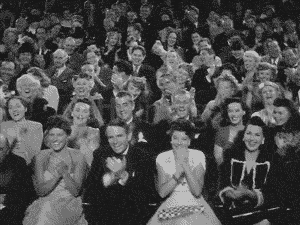I suppose I tend to alternate among the two; regardless of how sensitive and emotional a being I truly am, I'm also prone to detaching relatively easily when analyzing or assessing a particular situation via my tertiary Ti, which is usually stimulated by the need to resolve the ideas and visions my subconscious Ni function provides me with. Compulsive thinker that I am, I tend to process the images and influences of my surroundings at a particular instances, maintain the observed image in mind continuously as I try to decipher lurking or underlying meanings, possibilities, and truths beyond it all, and spend extended periods of time reflecting upon circumstances and deliberating options or potential explanations in my head (more frequently than not to a headache-inducing extent, mind you). All in all, however, I am by no means nearly as inclined to do left-brained activities or engage in repeated sessions of logical/ scientific deduction as some other INFJs might (perhaps due to in part to my 4w5 enneagram as well).
As for INFJs vs INTJs usage of intuition, I believe that INTJs are more predisposed to use their visions from Ni to better determine how to organize their environment systematically and efficiently, in order to logically achieve their objective or particular goal; INFJ however seems more likely to use their Ni either to perceive a vision to better improve society and interconnect it harmoniously into one (based upon the golden "truth" they've identified from their insights), or, when considering more apprehensive, cautious people as myself, predict happenings, conclusions, and interactions during social encounters (under some circumstances). Whereas INTJ wants to organize the world methodically and with precision (to explain why things logically occur as they would, as a scientist so often does), INFJ seeks to interconnect the people in their environment harmoniously and explain why we are morally prone to reacting in certain ways (or motivated by certain desires) under varying occasions.
Similarly to how INFP seeks moral purity and the presence of a strong value system and inner code of conduct (parallelled with INTPs personal desire for a solid, logical background to develop for themselves to rationally explain the universe's events), INFJ and INTJ seek similar motivations and goals, but in an inverse fashion.
Analogously:
INFP attempts to develop moral purity and personal understanding from within, based upon the ideas from the external world; INTP seeks a strong personal system of logical beliefs to better rationalize and explain their surroundings, based from the observations they've encountered externally.
Likewise, INFJ sees the general picture, develops an ambiguous image beyond it, and slowly has this image become clearer and more concrete based upon their interactions with others and what society has opinionated (hence leading to that "aha!" moment as they somehow determine the root cause, for instance, to the dissatisfaction several employees experience in a working environment due to a common void/ desire that has yet to be fulfilled, yet can only be accomplished by interconnecting the staff into one to slowly work together in achieving their purpose); INTJ, due to tertiary Fi, is much more single-minded and self-interested in certain arenas, desiring to observe the external world and systematically mold it according to their inner vision, motivated by the need to efficiently achieve said objective; they desire logic and the most methodical, precise means for accomplishing the task at hand, whereas INFJ may be slightly more prone to appearing impressionable against the moods and vibes of others in their environment, feeling discomfited by a lack of accord or cooperativeness among their coworkers (or otherwise).





 . He's NTJ, that's all I know for sure.
. He's NTJ, that's all I know for sure.
